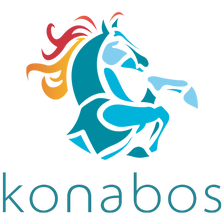Lost in Translation or Tailored to Perfection? Comparing Translation and Localization for Digital Media and Websites
Akshay Sura - Partner
9 Mar 2023
Businesses and organizations are expanding their reach to new audiences in different parts of the world. As a result, the need for communication in multiple languages is becoming increasingly important, especially on websites and digital media platforms. Two terms often used in this context are "localization" and "translation." Although they might seem similar, they have different meanings and purposes. This blog post will explore the differences between localization and translation in the digital media and website context and their benefits and disadvantages.
What is Translation in the Digital Media and Website Context?
Translation in the digital media and website context converts written or spoken language from one language into another, specifically for online content. It involves accurately transferring meaning from the source to the target language while retaining the original text's tone, style, and intent. Translation can be used for different purposes, such as facilitating communication between people who speak other languages and translating website content, mobile applications, and digital media materials.
Benefits and Disadvantages:
One of the main benefits of translation in the digital media and website context is that it enables businesses and organizations to reach a broader audience and expand their online presence. Translating their digital content into different languages allows them to communicate with potential customers who would not have understood their messages. Translation can also help to improve website SEO (Search Engine Optimization) and increase website traffic from different regions.
However, there are also some disadvantages to translation in the digital media and website context. The first is that translations can sometimes be inaccurate or inappropriate due to linguistic and cultural differences. It is also difficult to convey specific nuances and idioms in another language, which can lead to misinterpretation or confusion. Finally, translation can be time-consuming and expensive, especially if the content is complex or technical.
What is Localization in the Digital Media and Website Context?
Localization in the digital media and website context adapts digital content to meet a specific target audience's cultural and linguistic preferences. Beyond mere translation, it includes formatting, design, and user interface factors. Localization is essential for businesses and organizations that want to tailor their digital content to different markets and audiences and ensure it is culturally appropriate and relevant.
Benefits and Disadvantages:
The main benefit of localization in the digital media and website context is that it enables businesses and organizations to create digital content tailored to their target audience's needs and preferences. This can lead to higher engagement, customer satisfaction, and sales. Localization also shows that businesses are committed to serving their customers in different markets, which can help to build trust and brand loyalty.
However, there are also some disadvantages to localization in the digital media and website context. First, it can be time-consuming and expensive, especially if the content requires significant adaptation or customization. Localization also requires a deep understanding of the nuances of the target audience, which can be challenging for businesses and organizations that are new to a particular market.
Both localization and translation have benefits and disadvantages in the digital media and website context. The best depends on the goals and needs of a particular business or organization. Translation is essential for communicating with potential customers who speak different languages, while localization is necessary for adapting digital content to other cultural and linguistic preferences. By understanding the differences between localization and translation in the digital media and website context, businesses and organizations can make informed decisions about communicating effectively with their target audience in different parts of the world.
If you have any questions or concerns, please contact me. (@akshaysura13 on Twitter or Slack).

Akshay Sura
Akshay is a nine-time Sitecore MVP and a two-time Kontent.ai. In addition to his work as a solution architect, Akshay is also one of the founders of SUGCON North America 2015, SUGCON India 2018 & 2019, Unofficial Sitecore Training, and Sitecore Slack.
Akshay founded and continues to run the Sitecore Hackathon. As one of the founding partners of Konabos Consulting, Akshay will continue to work with clients to lead projects and mentor their existing teams.



Share on social media